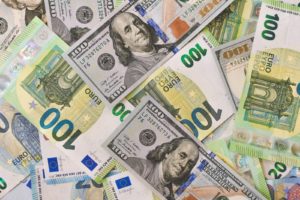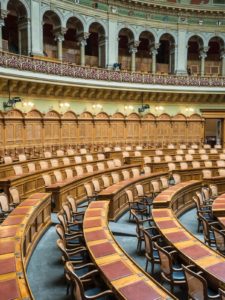An Amendment to the Business Tax Act has been passed as law and is now in effect as of 15 September 2021. The aim of the amendment to the Business Tax Act is to comply with OECD’s tax standards in order to ensure that the income of an IBC is being taxed in at least one jurisdiction in the world.
HYBRID TAX SYSTEM
The Seychelles tax system has been amended from a territorial tax system – where tax was only payable on income actually derived by the IBC from sources in Seychelles – to what is now a hybrid system where some income will be ‘deemed’ to be derived from sources in Seychelles and therefore taxable unless the IBC can meet certain criteria.
Income will not be taxable in Seychelles if the IBC can meet precise criteria in specific circumstances, such as already having a permanent establishment outside Seychelles, or in other circumstances, being able to prove that it has adequate economic substance in Seychelles.
INTELLECTUAL PROPERTY UNDER THE SPOTLIGHT
Another OECD concern is that many IBCs are not paying any tax in the world on revenue from Intellectual Property rights resulting in the OECD placing stricter criteria on such revenue. The result is that income derived anywhere in the world from IP rights held in Seychelles are deemed to be sourced in Seychelles and are therefore taxable in Seychelles (other than for the equivalent percentage of income from a patent which can be allocated to the percentage expenditure in Seychelles of the overall expenditure for research funding and development). The Amendment minimises this liability to Schedule 11 entities.
SCHEDULE 11 AND FOUR IDENTIFIABLE ENTITIES
IBCs form a large part of the financial services offering of Seychelles and if the Republic were to deem all IBC’s income as ‘income derived from sources in Seychelles’ or require all IBCs to have a permanent establishment with substance the result would be excessively detrimental to the financial sector of the economy. The Ministry of Finance has searched long and hard to find a middle ground that would please both the OECD as well as our financial services industry.
It has cast the net of the amendment as narrowly as possible hoping only to catch multinational companies labelled as “Schedule 11 Companies”.
This article will provide a practical look at what the amendment mean from the perspective of an IBC wishing to continue benefiting from zero tax in Seychelles.
Important information for the article:
- An entity resident person is one that is incorporated, or managed and controlled in Seychelles;
- If income is sourced (or deemed to be sourced) in Seychelles it is considered assessable for tax (tax resident);
- Business Tax Act Schedule 11 criteria (in reference to multinational group):
- applies to an enterprise, that is a member of a multinational group
“multinational group” means any group that includes two or more enterprises, the tax residence of such enterprise or enterprises are in different jurisdictions, or includes an enterprise that is resident for tax purposes in one jurisdiction and is subject to tax with respect to the business carried out through a permanent establishment in another jurisdiction
“group” means a collection of enterprises related through ownership or control, which is required to prepare consolidated financial statements for financial reporting purposes under applicable accounting principles or would be so required if equity interests in any of the enterprises were traded on a public securities exchange;
THE FOUR DECIPHERED ENTITIES
This article identifies four distinct entity types to whom the amendments will convey different results:
Entity 1: falls outside the Schedule 11 threshold and is therefore not a member of a multinational group:
- It is not a Schedule 11 company.
- It does not have its activities conducted, goods situated, or rights used in Seychelles.
- Its income is not considered as taxable in Seychelles.
It is important to note that Entity 1 is now considered entity resident in Seychelles, however, does not have a permanent establishment (therefore not tax resident) in Seychelles as this would likely mean it is conducting activities sourced in Seychelles.
Entity 2: is a Schedule 11 company and does not, as its primary activity, earn passive income.
- It is a Schedule 11 company.
- It does not have its activities conducted, goods situated, or rights used in Seychelles and therefore does not actually have income derived from sources in Seychelles.
- But its income from activities conducted outside Seychelles will be deemed to be sourced in Seychelles (tax resident) and therefore taxable in Seychelles unless …
Entity 2 can prove its income is not sourced in Seychelles by proving that it has a permanent establishment outside of Seychelles. Only then will its income not be taxable in Seychelles.
It is important to note that Entity 2 is considered entity resident in Seychelles, however it does not have a permanent establishment in Seychelles (therefore not tax resident) and has proof of a permanent establishment elsewhere.
Entity 3: is a Schedule 11 company and as its primary activity earns passive income as a pure equity holding company or a real estate holding company.
- It is a Schedule 11 company.
- It does not have its activities conducted, goods situated, or rights used in Seychelles and therefore does not actually have income derived from sources in Seychelles.
- But its income from activities conducted outside Seychelles, including its passive income will be deemed to be sourced in Seychelles and therefore taxable in Seychelles unless …
Entity 3 continues fulfilling its filing requirements (annual returns and financial statements) under the IBC Act in the same format that is required for our local domestic trading companies and has adequate human resources & premises in Seychelles for holding and managing the investment assets. Only then will its income not be taxable in Seychelles.
This entity is considered a tax resident entity and has permanent establishment in Seychelles.
Depending on future guidance, a registered agent may be considered adequate human resources for this entity.
Entity 4: is a Schedule 11 company and as its primary activity earns passive income from sources other than that of Entity 3’s passive income activities.
- It is a Schedule 11 company.
- It does not have its activities conducted, goods situated, or rights used in Seychelles and therefore does not actually have income derived from sources in Seychelles.
- But its income from activities conducted outside Seychelles, including its passive income will be deemed to be sourced in Seychelles and therefore taxable in Seychelles unless …
It can show the same requirements as Entity 3, and further, takes necessary strategic decisions, manages & bears principal risks, and incurs adequate expenditure in Seychelles related to its acquisition, holding, or disposal activities. Only then will it be considered to have permanent establishment in Seychelles but its income will not be taxable within Seychelles.
This entity is considered a tax resident entity and has permanent establishment in Seychelles in order to not be taxed.
TAX LIABILITY
The current business tax rates in Seychelles are as follows:
Assessable income in Seychelles Rupees (SCR)
- 0 – 1,000,000 25%
- 1,000,001 + 33%
The Business Tax amendment is in force and the amendment has allowed Seychelles to be removed from the EU Group’s blacklist and onto the greylist.
Lastly – the above are very general guidelines, each of your circumstances are different and even small differences often lead to different conclusions. It is therefore a MUST for each entity to seek a legal opinion on its status.
Should you require any further information please contact Christen Chambers.











